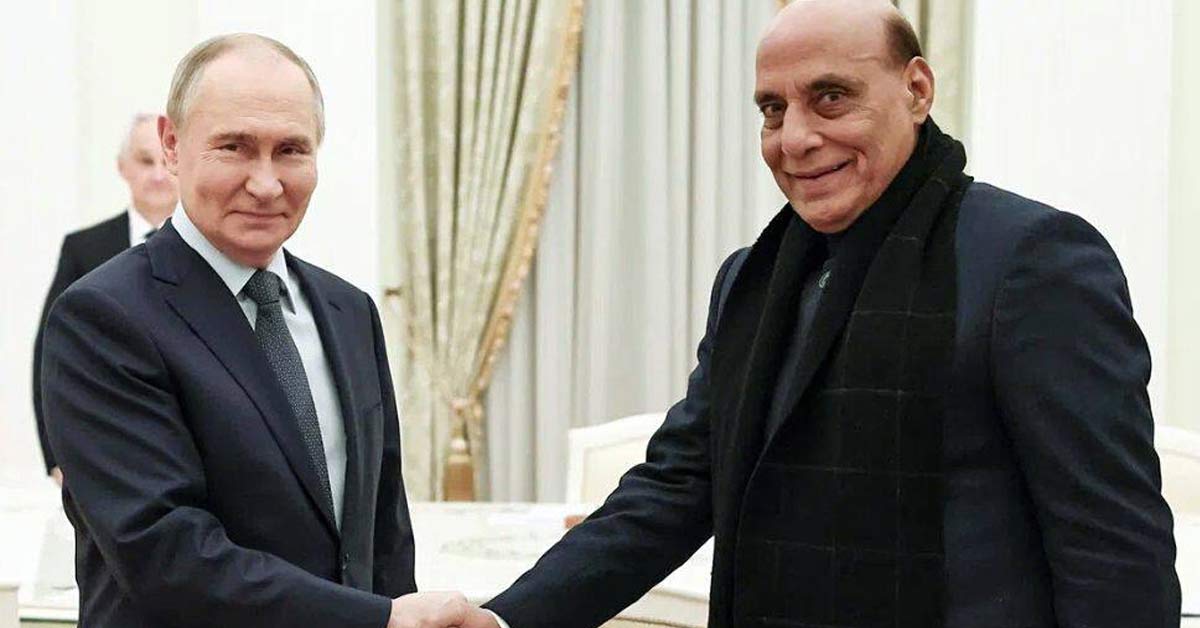- Indian company Ideal Detonators exported $1.4 million worth of HMX, a high explosive with military uses, to Russia in December.
- The shipment went to two Russian companies, Promsintez and High Technology Initiation Systems (HTIS), despite US warnings of potential sanctions.
- The US has designated HMX as “critical for Russia’s war effort” and warned financial institutions against facilitating its sale to Moscow.
- India maintains strong ties with Russia, despite forging closer ties with the US to counterbalance China’s influence.
According to Indian customs data, an Indian company exported $1.4 million worth of an explosive compound with military uses to Russia in December. This shipment comes at a time when the US is threatening to impose sanctions on entities supporting Russia’s Ukraine war effort.
One of the Russian companies that received the compound, HMX or octogen, is Promsintez, an explosives manufacturer with alleged ties to Moscow’s military, according to a Ukraine’s SBU security service official. The official noted that Ukraine had previously targeted a Promsintez-owned factory in a drone attack in April.
Another Russian company that received the compound is a subsidiary of Maxam, a Spanish explosives manufacturer controlled by Rhone Capital, a New York-based private equity firm.
According to the US government, HMX has been designated as “critical for Russia’s war effort” and financial institutions have been cautioned against facilitating its sale to Moscow. HMX is widely used in advanced military systems, including missile and torpedo warheads, rocket motors, and explosives, as per the Pentagon’s Defense Technical Information Center.
The sale of HMX to Russian firms has not been previously reported. Russian defense manufacturers have been working around the clock for several years to sustain President Vladimir Putin‘s war in Ukraine, which escalated with the full-scale invasion in 2022.
India, despite forging closer ties with the US to counterbalance China’s influence, has maintained its longstanding military and economic ties with Moscow.
India’s trade with Russia, particularly oil purchases, remains strong despite Western nations’ attempts to cripple Russia’s war economy with sanctions. US President Donald Trump warned of imposing a 100% tariff on countries continuing to buy Russian crude.
The US Treasury Department has the authority to sanction entities selling HMX and similar substances to Russia, according to sanctions lawyers. HMX is a “high explosive” that detonates rapidly and is designed for maximum destruction.
Reuters found no evidence that the HMX shipments went against Indian government policy. According to an Indian official familiar with the matter, HMX has limited civilian uses in addition to its well-known military applications.
India’s foreign ministry stated: “India has been carrying out exports of dual-use items taking into account its international obligations on non-proliferation, and based on its robust legal and regulatory framework that includes a holistic assessment of relevant criteria on such exports.”
The US State Department didn’t comment on the specific shipments identified by Reuters. However, they mentioned that they’ve repeatedly informed India that companies doing military-related business are at risk of sanctions. “India is a strategic partner with whom we engage in full and frank dialogue, including on India’s relationship with Russia,” a spokesperson remarked.
The US has warned its partners, including India, about potential sanctions. “We have repeatedly made clear to all our partners, including India, that any foreign company or financial institution that does business with Russia’s military industrial base are at risk of U.S. sanctions.” The State Department declined to comment further on the financial stakes of US and Spanish firms in one of the Russian recipient companies.
A Ukrainian presidential adviser, Vladyslav Vlasiuk, told Reuters that while India isn’t typically a primary jurisdiction for evading sanctions, isolated cases can happen. He added, “While India has not typically been among the primary jurisdictions used for circumventing sanctions, we are aware that isolated cases can occur,” and further stated, “We can confirm that the Russian company Promsintez has appeared on our radar in the past, including in connection with cooperation involving Indian counterparts.”
According to Indian customs data, Reuters found two HMX shipments sent by Indian firm Ideal Detonators Private Limited in December, both of which were unloaded in St. Petersburg. An Indian government official with direct knowledge confirmed the shipments.
The data showed one shipment, valued at $405,200, was bought by High Technology Initiation Systems (HTIS), a Russian company. The other shipment, worth over $1 million, was purchased by Promsintez. Both companies are based in Samara Oblast, near Kazakhstan in southern Russia.
HTIS describes itself on its website as a producer of explosives for mining and engineering projects, and claims to be a subsidiary of Madrid-based Maxam. Maxam, in turn, is majority-owned by Rhone Capital, a New York-based private equity firm founded by former Goldman Sachs and Lazard bankers.
According to a source familiar with Maxam’s operations, the company is currently divesting its Russian subsidiaries, and HTIS operates independently.
None of the companies involved, including Ideal Detonators Private Limited, Promsintez, HTIS, Maxam, and Rhone Capital, responded to requests for comment. According to two US officials who worked on sanctions under former President Joe Biden, while several Indian entities were sanctioned for supporting Russia’s war effort, sanctions were applied sparingly due to geopolitical considerations.
Under Trump, Russia-related sanctions work has slowed significantly. It’s unclear if the US will take further action against Indian companies doing business with Russia’s defense industry. The US has been trying to strengthen ties with India to pull it away from China.
Attorney Jason Prince, a partner at Washington-based law firm Akin, noted that the US government often prefers to express its concerns privately to allies and reserves punitive actions as a last option.






